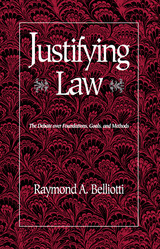
Debates over health care have focused for so long on economics that the proper goals for medicine seem to be taken for granted; yet problems in health care stem as much from a lack of agreement about the goals and priorities of medicine as from the way systems function. This book asks basic questions about the purposes and ends of medicine and shows that the answers have practical implications for future health care delivery, medical research, and the education of medical students.
The Hastings Center coordinated teams of physicians, nurses, public health experts, philosophers, theologians, politicians, health care administrators, social workers, and lawyers in fourteen countries to explore these issues. In this volume, they articulate four basic goals of medicine — prevention of disease, relief of suffering, care of the ill, and avoidance of premature death — and examine them in light of the cultural, political, and economic pressures under which medicine functions. In reporting these findings, the contributors touch on a wide range of diverse issues such as genetic technology, Chinese medicine, care of the elderly, and prevention and public health.
The Goals of Medicine clearly demonstrates the importance of clarifying the purposes of medicine before attempting to change the economic and organizational systems. It warns that without such examination, any reform efforts may be fruitless.

READERS
Browse our collection.
PUBLISHERS
See BiblioVault's publisher services.
STUDENT SERVICES
Files for college accessibility offices.
UChicago Accessibility Resources
home | accessibility | search | about | contact us
BiblioVault ® 2001 - 2024
The University of Chicago Press









